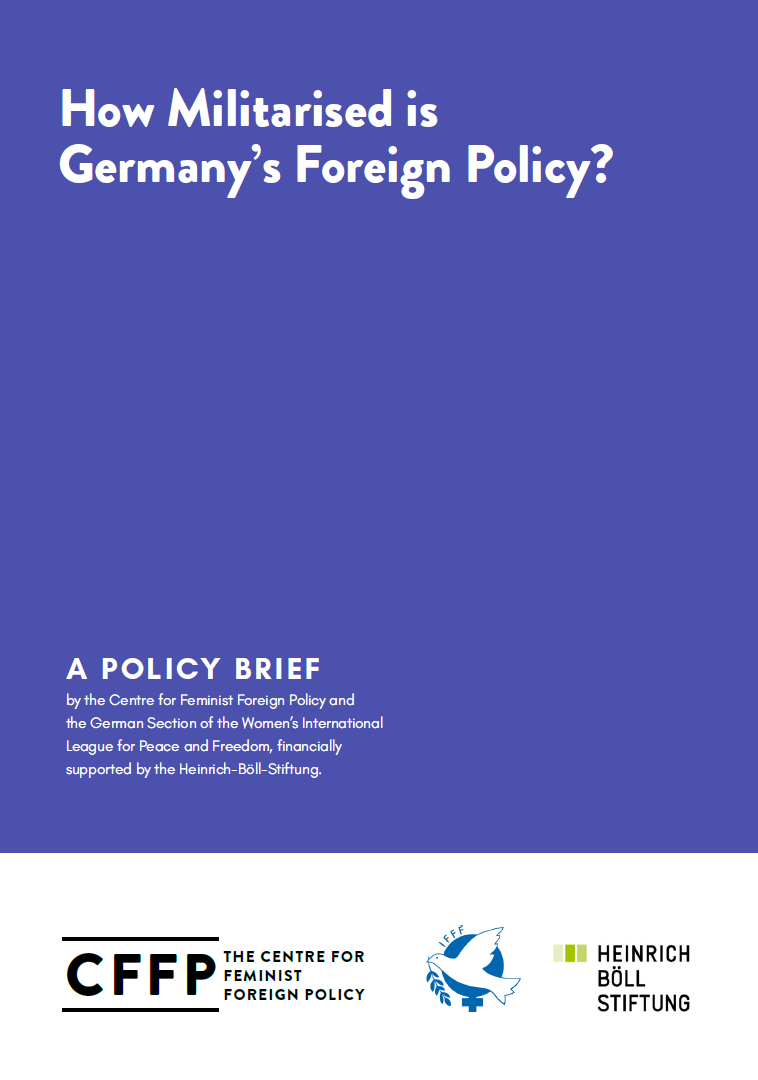By providing an analysis of Germany’s foreign and security policy priorities, decision-making processes, and multilateral engagement from a feminist perspective, this policy brief written by the Centre for Feminist Foreign Policy and WILPF Germany identifies entrenched militarisation in Germany’s foreign and security policy.
By providing an analysis of Germany’s foreign and security policy priorities, decision-making processes, and multilateral engagement from a feminist perspective, this policy brief written by the Centre for Feminist Foreign Policy and WILPF Germany identifies entrenched militarisation in Germany’s foreign and security policy.
Ultimately, it argues that by failing to de-centre the well-being of the state in international security conversations, Germany continues to prioritise national (security) interests over the security of people and communities around the world. In this way, the German government not only refuses to take responsibility for the impact of its militarised action and the circumstances of those made vulnerable by militarised border control, the exporting of arms, and the existence of nuclear weapons but is also actively obstructing the path towards efforts that would demilitarise the international system, such as international disarmament initiatives.
This briefing argues that Germany must abandon its militarised, state-centric conception of security in favour of approaches capable of addressing the root causes of conflict, eradicating inequality, and fostering inclusive and sustainable peace. It then provides concrete actionable recommendations that can be taken by the German government.
The policy brief was financially supported by the Heinrich-Böll-Stiftung.

